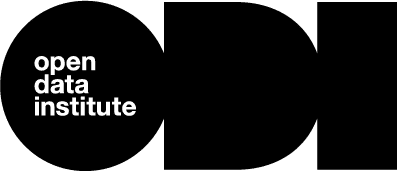The Open Data Institute
CPD Standards Office Provider Number: 21443
Send an enquiry to this training provider

Category: Data & Business Analysis
Description:
The Open Data Institute was co-founded in 2012 by the inventor of the web Sir Tim Berners-Lee and AI expert Sir Nigel Shadbolt to address today’s global challenges using the web of data. Our independent, non-partisan status, our trusted convening power and our extensive body of work – over 10 years – make us unique in the world.
We help organisations realise the potential of data, understand its properties and value through our research, and build skills and strategies for safe, ethical and trusted data sharing that benefit customers, citizens and stakeholders. We help leaders understand the value of data, and we show governments how creating standards for data and data practices can enrich public services. We break down barriers, help others forge alliances and create safe spaces for divergent views to be heard and for (sometimes conflicting) interests to align around a common cause.
ODI Learning have developed an extensive portfolio that makes data accessible to all. We use our Data Skills Framework to show the blend of skills required to get the best out of data. Whether you are a beginner or an experienced professional, our tailored programmes cater to diverse needs with a wide range of courses, workshops and resources. We offer tutored and fully self-paced learning options to cater for different learning styles and needs.
Accredited Activities:
Current Accredited Activities:
Who Should Attend:
Open Data in a Day is for employees from private companies, third-sector organisations and government departments. Previous participants have included: decision makers, managers, civil servants, researchers, policy advisors, journalists, students, strategists, data owners and publishers Introduction to Data Ethics is best suited to professionals who manage or use data to inform business strategy as well as day to day decision making. This includes, but is not limited to, performing data organisation activities with raw data, performing analysis either in spreadsheet software or BI Tools as well as interpret data outputs to share with stakeholders This course aims to help decision-makers such as compliance professionals, technical managers, product owners, and service managers bring a structured approach to anonymisation to the projects they are leading. This non-technical course is essential for anyone needing a theoretical understanding of the opportunities and limitations of using machine learning on data. This includes (but isn’t limited to) project leaders, C-suite managers, statisticians, data analysts, data scientists and developers. This course is for anyone working in organisations, who wants to make better decisions with data, or who is leading, or commissioning, data analysis and data-informed decision-making work. This course is perfect for those working with data: managers, policy-makers, technologists, directors, and those working in knowledge and transparency. This intensive, practical course has been carefully designed so you can apply your learnings to your work or project, problem solve, or create new opportunities. This course is ideally suited for professionals involved in ensuring that organisations are responsible with data practices. This includes consultants, managers and specialists working with teams who manage or use data to inform business strategy as well as day to day decision making. This course is for anyone working in capacity building, education and training. Ideally suited for those who have been running workshops and training sessions but lack formal training in educational theory and methods.
Further Information:
